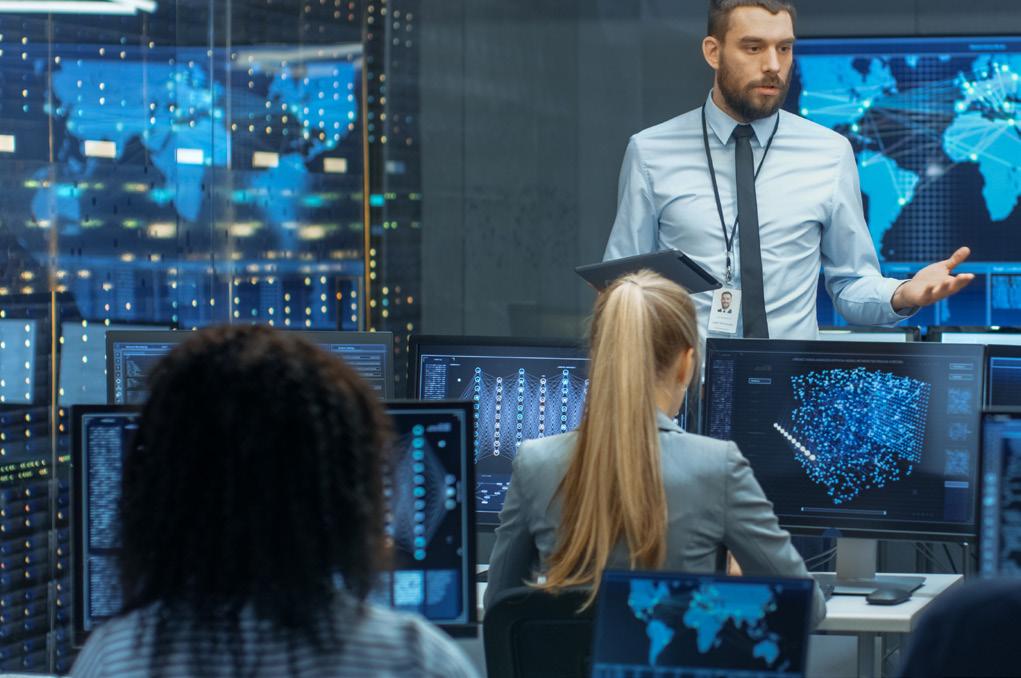
3 minute read
E d i t o r i a l E d i t o r i a l
Forecast of Cyber Security 2020
Advertisement
It is often argued that generals always prepare for past war. Are we only prepared for cyber threats that have already happened? The aim should be the prevention of new cyber operations and subsequent effects. This is achieved by substantially improving our cyber defence.
This will not work, if we do not have a comprehensive understanding of the development of the cyber world. The worst situation would be if cyber attackers were to surprise us with a tidal wave like the spreading of the corona virus. A vaccine for the coronavirus has not yet been developed and the after-effects are unpredictable. The same unpredictability arises from a cyberattack if our businesses and organizations are not well prepared.
Cyber operations have become an increasingly integral part of global politics. In this decade, the internetmay be divided into three parts: an USA, China and Russia driven internet. The objectives behind this are political aspirations as well as military and security interests. There is a growing desire for more control and more effective espionage, digital self-sufficiency, and empowerment. There is a risk of cyber operations developing into more hostile operations and becoming a part of a more aggressive policy. By increasing the ability to influence by destroying the opponent's internet and digital infrastructure more widely. This creates the "corona effect", and there is a risk it might blow up without any control.
What do we do as “outsiders”? We suffer from adverse effects - our digitalisation is not working, and our economy is suffering through global interdependencies. The creation of a European Internet has been requested to help safeguard our digital independence. Could it help? Probably a step in the right direction. However, no one has suggested that we ought to build a cybersecure European Internet. Would it even be possible? The answer is no, of course it may be better than the internet on other continents, but the cyber world is never 100% secure. The corona crisis teaches us that we must be prepared for surprises and create a new security culture to meet even more complex challenges. Preparing for cyber crises requires a new security culture and more innovative solutions. Our cyber defence must be more strategically agile. Easier said than done.
The cornerstone of our future cyber culture is certainly a holistic understanding of the building blocks of cyber security and the recognition facts. We need to be able to act and secure the vital functions of our society in situations where global connections are not working. We have already seen the GPS system shut down at critical moments, how the submarine cables can be cut off, and in the future the 5G network will be disrupted and the entire internet will go dark. Even in these situations, the most critical functions of societies must operate, such as government leadership, health care and the basic services of the population. In the future, it is not enough to be prepared to secure critical infrastructure and services. In the planning process, we must define what is supercritical to our societies.
Securing the supercritical functions of society must not be based on normal commercial connections and services, they must be at highest level of security. Suitable and robust technological solutions have been developed also in Finland. The expertise already exists, only the right situational awareness is needed for decision makers and there is enough determination to be prepared for the worst-case scenarios. After all, we have stated that we are well prepared, and we have trained our decision-makers at the national defence courses and various national exercises. Threats have changed and become increasingly more challenging. Good leadership’s significance rises to the peak of the mountain. I think the understanding of preparedness and the importance of a reliable situational awareness has become evident.
AAPO CEDERBERG
Managing Director and Founder of Cyberwatch Finland Chairman of Cyber Security Committee of World UAV Federation (WUAVF)











